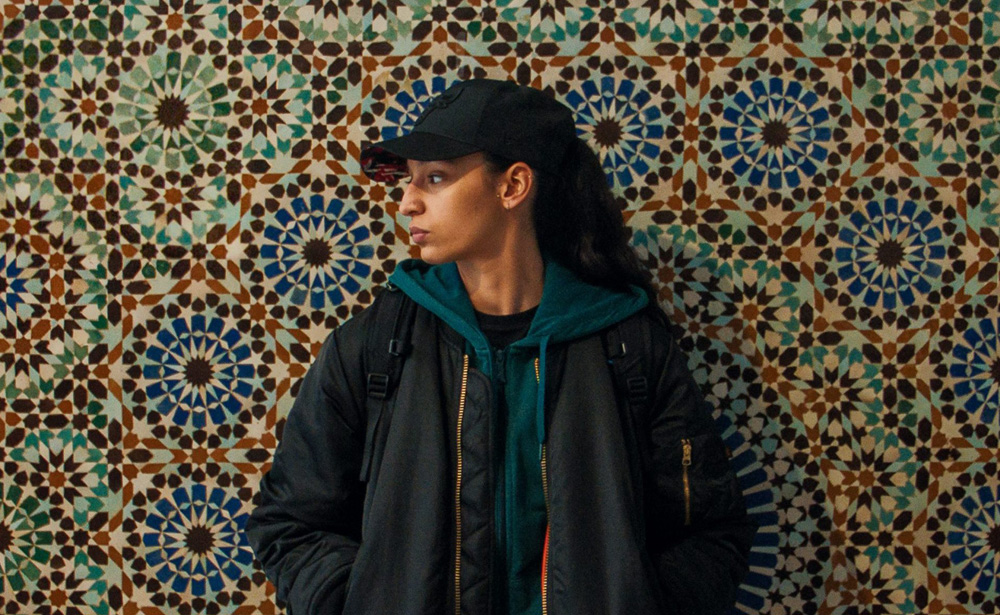A code starts to develop as Fatima (Nadia Melliti) uses different aliases in “The Little Sister,” occasionally dropping her real name into the fake ones she uses on late-night rendezvous with strangers in the night when she’s feeling more comfortable in her own skin. There’s a sense in Hafsia Herzi’s stirring adaptation of Fatima Daas’ semiautobiographical novel that others care less about the things that inhibit her than she does, but when the teenager on the cusp of heading to college is a mystery to herself, it can be as much of a surprise to her each time she decides to unmask herself as it is to an outside observer, perhaps even more so when the reasons can’t be easily articulated.
Herzi will note the change of seasons in her third feature outing as a director, but latches onto a feeling rather than straightforward narrative to enrapture when Fatima could be swallowed whole by the moment she finds herself in. Set to leave the nest, she is about to be more independent than she ever has been, yet poised to be more lost than ever when she’s been compelled to hide who she really is and has no sense of self. Protecting herself so vigilantly has come at the cost of having any sense of how much she can reveal to others and at home, she is a dutiful daughter who playfully spars with her two other sisters while at school, she’s a tomboy who can be embarrassed to get good grades in front of her friends who look loathe to crack open a textbook. Introduced in the dead of night cloaked in a hijab when “The Little Sister” begins, Fatima is rarely seen in it again in favor of street clothes to blend into her surroundings, but it’s reflective of a deep devotion to her Muslim faith that may have been passed down by her parents, though they appear now to have less interest in themselves, and would seem dramatically at odds with her attraction to other women, which she explores with blind dates she sets up online whose experience usually intimidates her.
The areas for possible confrontation in Fatima’s life are familiar, but where Herzi finds the drama isn’t when any resistance to who she is is treated almost entirely as an internal matter. Perhaps the film is overly optimistic that we live in more enlightened times when even a conservative Imam Fatima visits seems somewhat flexible considering how sexual orientation aligns with their religion, but it opens a keen observation of a different and more abstract set of obstacles to overcome when self-acceptance can happen incrementally and imperceptibly. At first, Melliti comes across as reserved to a fault as Fatima, more withdrawn than timid, yet that quality gradually becomes one of the film’s great strengths when there’s remarkable tension in what Fatima can understand about herself and leave unknown at that age. The merest expression can make an impact, which is why there’s a genuine stir when a hint of a smile creeps across Fatima’s face upon brushing up against Ji-Na (“Return to Seoul” force of nature Park Ji-Min), a healthcare worker she meets while going to an educational exercise for her asthma condition. There’s no hiding her real name from Ji-Na when it’s already out there, but it’s the relationship in which she has the most to lose by being vulnerable when the feelings are mutual and clearly run deep.
It turns out both Fatima and Ji-Na are afraid of what comes next, making the connection as perilous as it is pleasurable for them both, yet what can’t be taken away is the seed of confidence it gives the former to begin to abandon the idea she has to be so secretive about her identity. While Fatima remains naturally inexpressive, Herzi lets environments express her increasing comfort in public, placing Fatima at the center of a pride march or in the middle of a gay nightclub where the activity around her is all the more exciting when it seems like it’s connected to what’s buzzing inside and the emotions that overwhelm Fatima arrive undiluted when the director skillfully connects exuberant set pieces to the smallest shifts in perspective. As Fatima’s own horizons broaden, the film’s most impressive aspect is its own capacity to hold together all the contradictions that make her path a singular one, hardly suggesting that anyone else could or should follow in her footsteps for their own peace of mind when everyone’s personal makeup consists of so many varied elements and discourages the idea that reconciling these parts of oneself will end at a certain age. But “The Little Sister” recognizes that what Fatima makes her think she’s unique can be unifying when in fact that’s what she shares with everyone else and from that common ground, a conversation can go more interesting places.
“The Little Sister” will screen again at the Cannes Film Festival as part of the Competition on May 17th at 8:45 am at the Le Cineum Imax and 11:45 am at the Grand Theatre Lumiere, May 18th at the Le Cineum Aurore at 8:45 am, and May 19th at 9:15 at Le Cineum Screen X.




